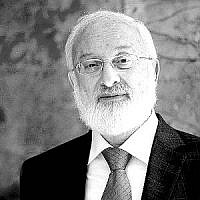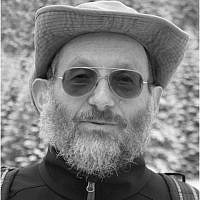No Safe Place for Jews, Unless We Create It
As the State of Israel marked Yom HaShoah (Holocaust Remembrance Day), thousands of Muslims gathered at the Temple Mount in Jerusalem and chanted slogans calling for the massacre of Jews. It raises the harsh question of whether Israel can still be considered a shelter for Jews at a time when multiple reports find record-high numbers of antisemitic incidents globally.
An estimated 150,000 Muslim worshipers took part in mass prayers on the Temple Mount by the end of the Muslim holy month of Ramadan on May 1. Some used the occasion to march and shout “Khyber, Khyber al-Yahud”—a call for the annihilation of Jews, like the mass murder that occurred in the Khyber battle of 629 CE.
It is bitterly ironic that this happens after decades of immense efforts to curb antisemitism following the Holocaust, and in Jerusalem no less, the capital of the Jewish state, the same state conceived as the homeland and safe haven for those escaping hatred and persecution for no other reason than being Jews.
This should remind us that it’s useless to look for a place where there are no Jew haters because we will find no such place, including Israel. Instead, we should be looking for the way to transform the hatred between Jews into love, and to build a common place of connection between us. By doing so, all the evil and rejection against us from the nations of the world and from our neighbors would be replaced by good.
We need to understand that if not for the hatred of the nations of the world towards us, we would have ceased to be a distinct people long ago. That is to say Jews, the smallest of minorities, and the most prominent, would have vanished among the nations. Unfortunately, we behave like brothers primarily in times of trouble. Only when pressured by hatred against us are we forced to be close to each other.
This is so because, according to our roots, we were not founded on the common denominators of residential area, family relations, origin or color, but as a conglomeration of different peoples. Therefore, there is no natural inclination and closeness between us; we need to work on it consciously. No less important, we must not wait for others to compel us.
As Kabbalist Yehuda Ashlag, Baal HaSulam warned back in 1940 in his writings, “Even the little we have left of the national love is not instilled in us positively, as it is in all the nations. Rather, it exists within us on a negative basis: It is the common suffering that each of us suffers being a member of the nation. This has imprinted within us a national awareness and proximity, as with fellow-sufferers.” And added, “Its measure of warmth suffices only to an ephemeral excitement, but without the power and strength with which we can be rebuilt as a nation that carries itself. This is because a union that exists due to an outside cause is not at all a national union.”
We have no alternative but to rise above our differences and unite. The phenomenon of antisemitism is revealed in the world as a natural response to remind the people of Israel why it exists in the world. Our only option and shield for defending ourselves against hatred is the implementation of our role as “a light unto the nations,” which can only be achieved through our unity. Plain and simple—only to the extent that we connect with one another above the rejection and hatred between us will we be able to enjoy peace and quiet.



